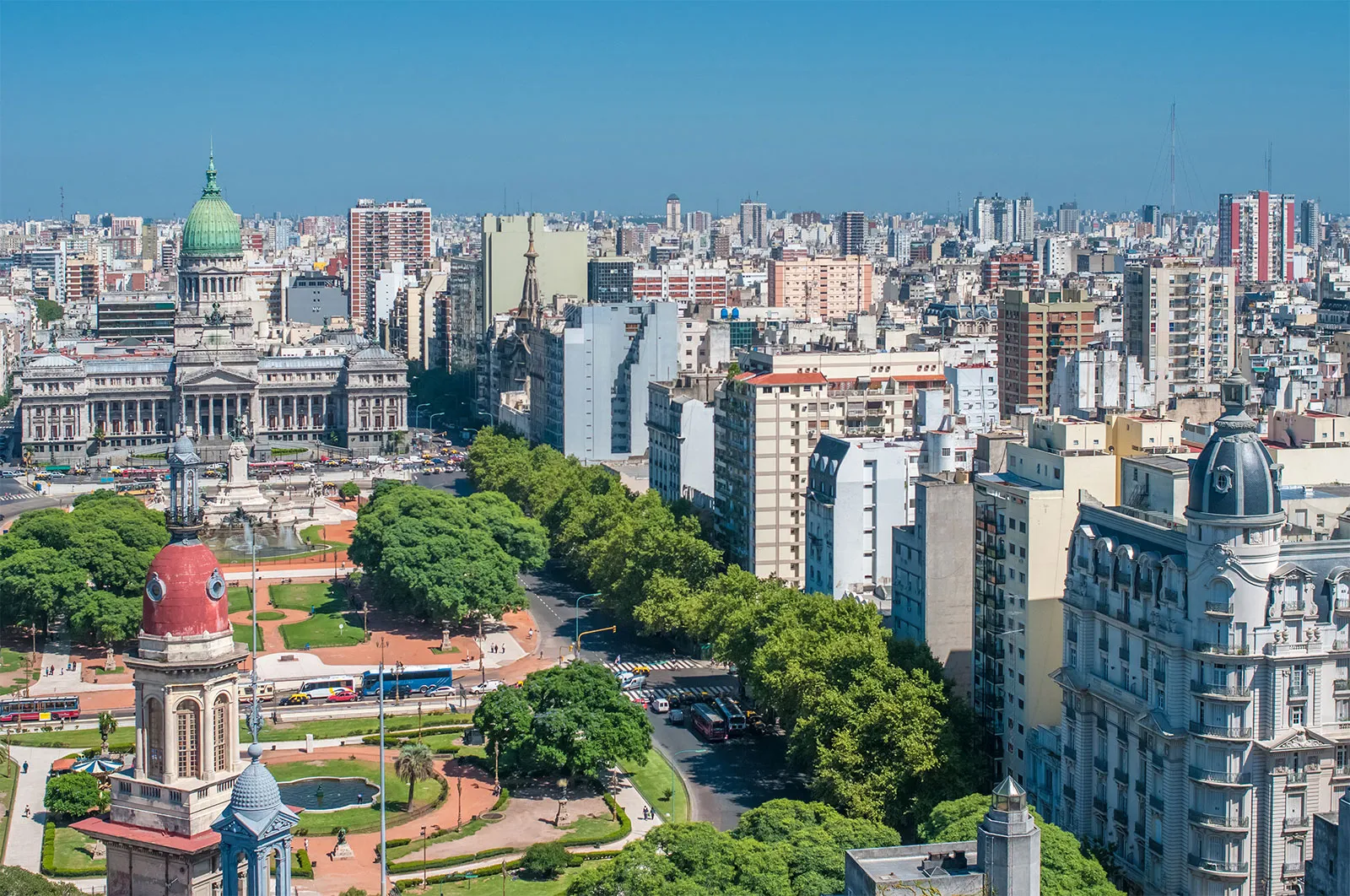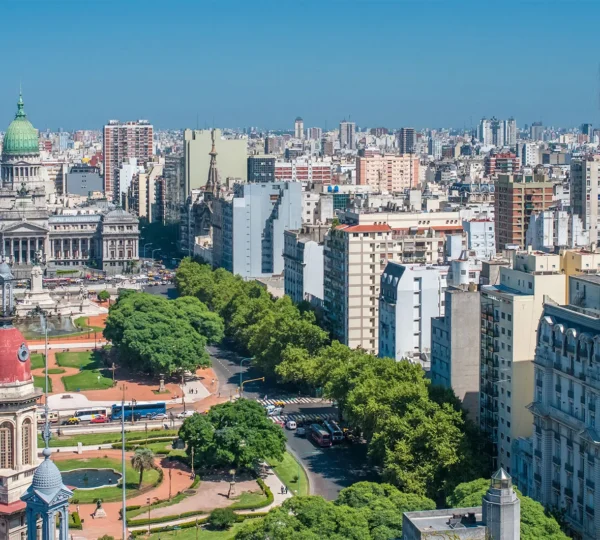
Renting or Buying Property in Argentina as a Foreigner
Argentina is a popular destination for expatriates, retirees, and investors due to its affordable real estate market, diverse landscapes, and vibrant cities. Foreigners can legally buy and rent property in Argentina without restrictions, making it one of the most accessible real estate markets in South America. This guide provides an overview of the rental and purchase process, legal requirements, costs, and key considerations for foreigners interested in real estate in Argentina.
Renting Property in Argentina
Finding a Rental Property
Foreigners can find rental properties in Argentina through various sources. Online platforms such as Zonaprop, Argenprop, MercadoLibre, and Facebook Marketplace list available rentals. Licensed real estate agents (inmobiliarias) help negotiate contracts and handle legal matters. Many landlords also advertise through classified ads and word-of-mouth referrals.
Rental Agreements and Requirements
Most lease agreements in Argentina are for 12 to 36 months. A security deposit equal to one to two months’ rent is usually required. Some landlords require a guarantor (garantía), which can be a challenge for foreigners. As an alternative, tenants can offer a higher deposit, a bank guarantee, or rental insurance. Rent is typically paid monthly, and tenants are responsible for utilities such as electricity, water, and internet. It is essential to sign a lease agreement (contrato de alquiler) and have it notarized to ensure legal protection.
Average Rental Prices in 2024
| City | One-Bedroom Apartment (USD per month) | Three-Bedroom Apartment (USD per month) |
| Buenos Aires | 300 – 900 | 900 – 2,500 |
| Córdoba | 250 – 700 | 700 – 1,800 |
| Mendoza | 200 – 600 | 600 – 1,500 |
| Rosario | 250 – 700 | 700 – 1,800 |
| Bariloche | 350 – 1,200 | 1,000 – 2,500 |
Buying Property in Argentina as a Foreigner
Can Foreigners Buy Property in Argentina
Foreigners can buy property in Argentina with no restrictions, including residential, commercial, and rural land. However, properties located near international borders or in protected areas may require special approval from the National Commission of Borders.
Legal Requirements for Foreign Buyers
Foreign buyers must obtain a CUIT or CUIL (tax identification number) from the Federal Administration of Public Revenue (AFIP) to complete the transaction. Residency is not required, but non-residents may need to register the property purchase with the Central Bank of Argentina if bringing funds from abroad.
Steps to Buying Property in Argentina
Finding the Right Property
Foreign buyers should work with a licensed real estate agent (corredor inmobiliario) and a lawyer (abogado inmobiliario) to navigate the purchasing process.
Conducting Due Diligence
Buyers should verify the property title, outstanding debts, zoning regulations, and legal ownership. A certificado de dominio (ownership certificate) and certificado de inhibiciones (checks for legal claims) should be obtained from the real estate registry.
Signing the Purchase Agreement and Paying the Deposit
A preliminary purchase and sale agreement (boleto de compraventa) is signed, and a deposit of 20 to 30 percent of the property price is usually required.
Finalizing the Transaction
Once all checks are complete, the final contract is signed in front of a public notary (escribano público), and the buyer pays the remaining balance. The property must be registered with the Land Registry Office (Registro de la Propiedad Inmueble) to officially transfer ownership.
Costs of Buying Property in Argentina
Foreign buyers should account for additional costs beyond the property price.
- Property Transfer Tax (Impuesto de Transferencia de Inmuebles – ITI): 1.5 percent of the purchase price.
- Stamp Duty (Impuesto de Sellos): 2 – 4 percent of the purchase price (varies by province).
- Notary Fees: 1 – 2 percent of the property value.
- Registration Fees: 0.5 – 1 percent of the property value.
- Real Estate Agent Fees: 3 – 4 percent, typically split between the buyer and seller.
- Legal Fees: 1 – 2 percent of the property price.
Mortgage Availability for Foreigners
Foreigners can apply for mortgages in Argentina, but local banks generally do not offer loans to non-residents. Most foreign buyers pay in cash or finance the purchase through international banks or private agreements.
Best Cities for Real Estate Investment in Argentina
- Buenos Aires – The economic and cultural capital, with high rental demand.
- Córdoba – A university city with strong demand for student rentals.
- Mendoza – A wine region attracting foreign investors and retirees.
- Rosario – A major economic hub with lower property prices than Buenos Aires.
- Bariloche – A tourist hotspot with growing demand for vacation rentals.
Key Considerations for Foreign Buyers
Legal Restrictions
Foreigners cannot buy land near international borders without special approval. Rural and agricultural land purchases may also require government review.
Investment Potential
Rental yields in Argentina range from 5 – 8 percent per year, making it an attractive investment option. However, economic fluctuations and inflation should be considered.
Frequently Asked Questions
Can foreigners buy land in Argentina
Yes, but purchasing land near international borders or in protected areas requires government approval.
Can foreigners rent out property in Argentina
Yes, foreign property owners can lease their property, but rental income is subject to Argentine tax laws.
What is the minimum investment required for property in Argentina
Apartments in major cities start at $50,000 – $100,000 USD, while luxury properties can exceed $1 million USD.
Do I need to be in Argentina to buy property
No, foreign buyers can purchase property remotely through a lawyer and power of attorney (poder notarial).
Does buying property in Argentina grant residency
No, but foreigners who invest at least $15,000 USD in real estate can apply for an Investor Visa, which may lead to permanent residency.
Are there risks in buying property in Argentina
Yes, including title fraud, economic instability, and currency fluctuations. Buyers should work with a lawyer and conduct thorough due diligence before purchasing.
Conclusion
Argentina offers strong real estate investment opportunities for foreigners, with relatively few restrictions on ownership. However, foreign buyers must obtain a CUIT or CUIL tax number, conduct legal checks, and register their property with the appropriate authorities. Working with a real estate agent and a lawyer ensures a smooth and secure property transaction.
Use our database to find visa facilitators, real estate agents, and recommended professionals. You will also have the ability to book a time to meet with our expats on the ground. These are individuals just like you who have gone through the immigration process and have been living in your desired country or city.
During these sessions, you can discuss every small detail related to the moving process. It’s like having a trusted friend everywhere you go. Whether you want to plan a short trip, need help finding an apartment, or you want some advice on moving to a particular city, they can help. This is a great way to meet someone with a similar background to help you achieve any of your goals.
Recent Posts
Comprehensive Step-by-Step Guide to Obtaining Your Visa In Mexico
Buying Your First Business in France
All Categories
- Argentina
- Australia
- Austria
- Bahamas
- Bali
- Belize
- Brazil
- Chile
- Colombia
- Costa Rica
- Czech Republic
- Denmark
- Dominican Republic
- Ecuador
- El Salvador
- Fiji
- France
- Germany
- Greece
- Hungary
- India
- Ireland
- Jamaica
- Japan
- Malaysia
- Mexico
- Netherlands
- New Zealand
- Norway
- Panama
- Peru
- Philippines
- Portugal
- Singapore
- South Korea
- Spain
- Sweden
- Switzerland
- Thailand
- UAE
- Uncategorized
- United Kingdom
- Uruguay
- Vietnam



